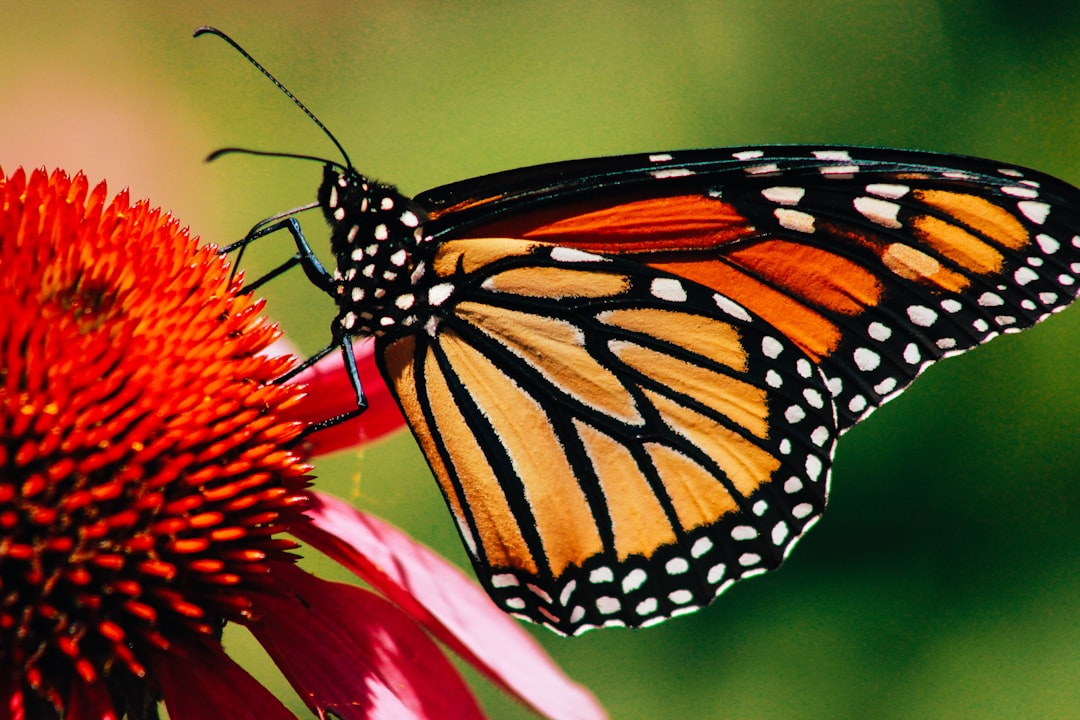What do we owe the ones we love?
I once thought I knew; once thought the answer, naturally, was “everything.”
Monarch butterflies proliferate the forest behind our house these days. In the outside world, they’re endangered (did you know?), but here, you would never guess. Here, they are thriving, dazzling and brazen. I can take one walk through the woods and cross a dozen of them. It’s safe here, after all; here where the divine dwells freely. Safe to flourish, safe to multiply.
Until it’s not.
Because by the end of autumn, all bets are off. The rawness of the wild pulls no punches — and why should it? Sacred doesn’t mean safe, nor unchanging. The cycle of life is not always palatable, but it is consistent. The wild holy of the earth, the same wild holy that buzzes in our bones, you and I, it never stays the same.
I’ve been thinking lately about my friend and fellow writer
who, raised in a fundamentalist home, realized as an adult that she would have to choose between making her parents proud or making her children proud. It was an easy choice, she said, but she grieved having to make it.While that has not been my particular choice to make, I can relate to the point of it: love does not necessitate allegiance. All of us, in a relationship of some kind along the way, will have to reckon with questions of fidelity and commitment. For many those foundations, laid while we were young, have felt like absolutes.
Maybe with your kin, family loyalty comes first, in the right or in the wrong. Maybe it was instilled in you that marriage is forever, no matter the cost to your body, mind, or soul. Maybe you bought the narrative that motherhood would be the fulfillment of your life and require the sacrifice of every other identity. Whatever the iteration, one thing remains consistent: when these foundations are considered facts of life there is little allowance for change, for growth.
I’m curious about people — what motivates us, what shapes us, what terrifies us — so I do a lot of noticing. And one recurring theme I’ve observed in the past few years is that many of us are questioning those previously held relationship assumptions, and not for the sake of rebellion or irresponsibility. There is genuinely something stirring, the wild places howling in us as a collective people; something insisting, things made of stars cannot be domesticated.
So what do we owe the ones we love? Undying allegiance? Self-abandonment? I can’t believe so. I can’t believe that’s love.
Maybe the real question is, What do we owe our own souls?
Maybe the answer to the latter is the only real answer to the former. Maybe rewilding our souls is the only way to free others, even if that means some degree of grief or discomfort — even pain. In the Great Cosmic Arms, can we trust that this rewilding is a gift that passes on to the ones we love, even if not in the way we expect or would choose?
Every autumn, millions of monarch butterflies migrate from their breeding grounds in northeastern North America to hibernate all winter in southwestern Mexico. Each migration is undergone by a new generation of butterflies, so there is no way to learn the path from others. They must trust themselves. And trust themselves they can: monarchs have a genetic clock in their antennae that tells them when to migrate.
There is no one who can teach them what they already know.
Yesterday I walked through the forest behind our house. There were no monarchs this time, not even one. They have already moved on; already given way to the wild holy within that tells them, instinctively, what to do. But even as they heed their own antennae, even as their own eyes navigate the horizon, they still choose to travel together. I find comfort in that.
But I miss them. I wish they could have stayed out here, stayed the same, even while I know they can’t. Even while I know it would have killed them. Even while I know this is the better way.

For your clicking pleasure this weekend:
I had the chance to interview Fr. James Martin about his new book, Come Forth: The Promise of Jesus’ Greatest Miracle for NCR. Give it a read here.
I was deeply appreciative of this essay by
on the poetry of Langston Hughes and the impact of creative work on Black bodies and communities.Okay fine,
is one of my best friends. But even if she wasn’t, I would point you to this essay on caves, suffering, and compassion.Eric and I have been watching the new Star Wars series, Ahsoka, and it called for a revisit of this old NCR article by Jennifer Vosters. Anytime a writer can connect a fantasy world to the disillusionment of being female and Catholic (“A young woman realizing that the institution she loved did not love her back.”), I will be the first to read it.
I hope you have a delightful Saturday. But if you don’t, hey, there’s always next weekend.
With love and gratitude,
Shannon


beautiful!
“things made of stars cannot be domesticated” - I need a print. ✨